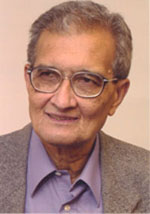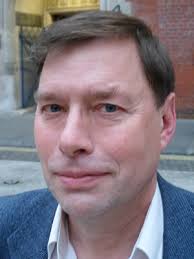We’ve been fortunate to conduct interviews with some of the world’s leading academics in 2014, with discussions ranging from the rise of inequality in the developed world to the economics of mental illness and the UK’s welfare state.
1. Thomas Piketty: “We don’t need 19th century-style inequality to generate growth in the 21st century”
 Thomas Piketty discusses the rise in income and wealth inequality outlined in his book, Capital in the Twenty-First Century, and what policies should be adopted to prevent us returning to the kind of extreme levels of inequality experienced in Europe prior to the First World War.
Thomas Piketty discusses the rise in income and wealth inequality outlined in his book, Capital in the Twenty-First Century, and what policies should be adopted to prevent us returning to the kind of extreme levels of inequality experienced in Europe prior to the First World War.
2. Ha-Joon Chang: “Members of the general public have a duty to educate themselves in economics”
 Ha-Joon Chang discusses his new book, Economics: The User’s Guide, and the need for a pluralist approach to economics.
Ha-Joon Chang discusses his new book, Economics: The User’s Guide, and the need for a pluralist approach to economics.
3. Saskia Sassen: “A good bit of the economic numbers rests on a sort of economic cleansing”
Saskia Sassen discusses the UK’s economic ‘recovery’ and her new book, Expulsions: Brutality and Complexity in the Global Economy.
discusses the UK’s economic ‘recovery’ and her new book, Expulsions: Brutality and Complexity in the Global Economy.
4. Richard Layard: “Mental illness is the biggest single cause of misery in our society”
 Richard Layard discusses the importance of combating mental illness and his new book, Thrive: The Power of Evidence-Based Psychological Therapies, which he co-authored with David Clark.
Richard Layard discusses the importance of combating mental illness and his new book, Thrive: The Power of Evidence-Based Psychological Therapies, which he co-authored with David Clark.
5. Diane Coyle: “The BBC needs to stay independent and accountable to the people who pay for it”
 Diane Coyle discusses the future of the BBC and the need for it to truly reflect Britain in all its diversity. She also discusses the impact of technology and globalisation.
Diane Coyle discusses the future of the BBC and the need for it to truly reflect Britain in all its diversity. She also discusses the impact of technology and globalisation.
6. Paul Dolan: “Happiness is experiences of pleasure and purpose over time”
 How can we be happier? What is happiness? These questions are often asked yet seldomly answered in a satisfactory manner. In an interview with Joel Suss, editor of the British Politics and Policy blog, Paul Dolan explores these questions and discusses his new book, Happiness by Design. Released yesterday, the book is a culmination of years of research into happiness, its causes and how we can all get more of it.
How can we be happier? What is happiness? These questions are often asked yet seldomly answered in a satisfactory manner. In an interview with Joel Suss, editor of the British Politics and Policy blog, Paul Dolan explores these questions and discusses his new book, Happiness by Design. Released yesterday, the book is a culmination of years of research into happiness, its causes and how we can all get more of it.
7. Amartya Sen: “I think that Piketty’s conclusions mostly stand”
 Amartya Sen discusses Thomas Piketty’s recent work, the consequences of widening inequality, and his views on India’s Prime Minister Narendra Modi, whose BJP party won the country’s 2014 general election.
Amartya Sen discusses Thomas Piketty’s recent work, the consequences of widening inequality, and his views on India’s Prime Minister Narendra Modi, whose BJP party won the country’s 2014 general election.
8. Danny Dorling: “The rise in income and wealth inequality that began from the 1970s onwards has become a housing problem in the end”
 Danny Dorling traces the roots of the housing crisis in the UK, connects the housing issue with economic inequality, and argues for what’s to be done.
Danny Dorling traces the roots of the housing crisis in the UK, connects the housing issue with economic inequality, and argues for what’s to be done.
9. John Hills on the welfare myth of ‘strivers’ versus ‘skivers’
 John Hills discusses his new book, Good Times, Bad Times: The Welfare Myth of Them and Us. With two-thirds of all UK public spending going towards welfare, how the money is spent is an important political debate. The myth that dominates this debate, and to some extent drives policy, divides the British public into two opposing camps – those that pay into it versus those who benefit, ‘strivers’ versus ‘skivers’. Professor Hills explains why the picture is far more complicated.
John Hills discusses his new book, Good Times, Bad Times: The Welfare Myth of Them and Us. With two-thirds of all UK public spending going towards welfare, how the money is spent is an important political debate. The myth that dominates this debate, and to some extent drives policy, divides the British public into two opposing camps – those that pay into it versus those who benefit, ‘strivers’ versus ‘skivers’. Professor Hills explains why the picture is far more complicated.
10. Timothy Garton Ash: “We’re far more European in the UK than we think we are”
 Is it possible to create a truly European public sphere? Timothy Garton Ash discusses the failure of efforts to reignite the enthusiasm of citizens for European integration, the importance of European identity, and why the UK is far more European than most people believe.
Is it possible to create a truly European public sphere? Timothy Garton Ash discusses the failure of efforts to reignite the enthusiasm of citizens for European integration, the importance of European identity, and why the UK is far more European than most people believe.







